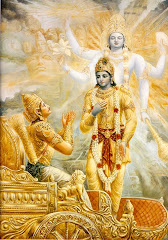
This is my second blog and I am enjoying blogging already!
I guess blogging came about when folks moved away from their 'Dear Diary' moments onto the web. I wish Anne Frank had lived to see this day.
I read somewhere that if you own a blog, it better be something special. I have also read that if one is not putting up something useful or interesting, they are not blogging, they are 'blagging'. Needless to say, I have no intention of doing the latter! Who would want to read about boring and sub-standard stuff? Not me, for sure. I feel thats a criminal misuse of sacred space.
But, this being my blog, I will write about things/events/situations that affected me.
I want to write about 'Malgudi Days' today.
Last year, Sir Jeffrey Archer, the well known English novelist, playwright and short story writer was on a trip to India to promote his latest book 'A Prisoner of Birth'. During one of his interactions with the press and public, he mentioned about his regret for not having read R.K. Narayan's works before. I am sure he must be doing everything within his powers to get himself acquainted with the same, including the classic 'Malgudi Days'.
The 'creator' of 'Malgudi Days' - R. K. Narayan (October 10, 1906 - May 13, 2001) shortened from Rasipuram Krishnaswami Ayyar Narayanaswami at the behest of Graham Greene, was one of the best-known and widely read Indo-English writers. He created the imaginary town of Malgudi, located on the banks of the river Sarayu and surrounded by the Mempi Hills, where realistic characters in a typically Indian setting lived amid unpredictable events. These characters have proved to be timeless. 'Malgudi Days' was my introduction to R.K. Narayan... and I love this classic author! I really enjoyed this collection... they are the kind of stories that will stay with you for several days after reading them.
There is a saying 'Don't judge a book by its movie' or for that matter, serial, if I may say so. 'Malgudi Days' proved to be an exception. The serial was directed by the late Kannada actor/director, Shankar Nag in 1987, and was shot entirely near Agumbe in Shimoga district of Karnataka. Who can forget the famous 'Ta na na tana na na naaaaaaaa'....the title song/melody (by L. Vaidyanathan) of the serial? It was as popular, if not more, than the stories dramatized by the serials themselves. One could almost feel the aroma of the lyrics!
Here is the link to this evergreen song:
Although television had arrived in India in the 1950's, albeit in its black and white avatar, it wasn't a mass media due to its high cost, logistics and other technical issues. The Government of India undertook several steps to popularize the medium. The 1970s and 1980s saw a boom in television programming. The Ministry of I & B - Government of India... invited independent producers and directors to shoot TV serials on a regular basis. 'Hum log', 'Buniyaad', 'Neem ka ped', 'Waghle ki duniya', 'Mungerilal ke haseen sapne', 'Nukkad', 'Karamchand Jasoos', 'Byomkesh Bakshi', 'Office Office', etc., were some of the memorable serials of this era. These serials have eluded the calls of father time. 'Malgudi Days' was also one such TV serial which left an indelible mark on the Indian television scenario.
The stories revolve around the protagonist, ten-year old Swaminathan. 'Swami'... to his friends and family. Swami portrays the growing pangs of a boy who despises school, as he makes excuses and roams around Malgudi with his friends, playing cricket and day dreaming along the way. Swami's father works in a government office (of the British Raj era) and his mother is a housewife. At home, Swami shares his adventures with his aged granny, who lovingly addresses him as 'Chamy'. Swami also has two close friends - the hotheaded Mani and the son of the Police Superintendent, Rajam - a cocky, brash, rich kid. Master Manjunath enacted Swami's character while the sketches for the serial were done by R.K. Narayan's younger brother and acclaimed cartoonist, R.K. Laxman. There were about 39 episodes in all. 'Swami and Friends', 'Vendor of Sweets', 'The Undelivered Mail', 'A Hero', 'The Hoard', 'Leela's Friend', to name a few. No one has captured the essence of rural India like R.K. Narayan and 'Malgudi Days' is a glittering example. Each story stands out for its simplicity, innocence and Indian ness. A must and a thorougly enjoyable read. The TV series of the same name... has done complete justice to the original book.
Following is the link to these episodes for everyone who would love to relive their happy childhood and keep it for posterity:
'Malgudi Days' has been an integral part of my growing up years. I still remember the excitement and the scramble to grab vantage spots in front of the television everytime the serial came on air. As they say... 'Old is gold'. Does that mean 'New is silver' or 'new is bronze' or 'new is brass' or 'new is carbon?'... Hmmm. Food for thought. What say?
After the liberalization of the economy, with the advent of the cable TV, we were flooded with channels and thought we would be spoilt for choice! Since a mere DD telecasted so many good nay great serials, not to forget the two mythological epics 'Ramayan' and 'Mahabharat' we were about to see several high quality ones from every channel, each vying for the viewers attention.
Or so we thought. And were quickly brought down to terra firma, left to reminisce about the past glories of television serials. 'Quality' and 'Quantity' do not go hand-in-hand any more. Sadly.
Photograph: The house in which 'Malgudi Days' was shot in Agumbe, Karnataka (India).














Two great posts in two successive days! I liked reading both of them. And the quotes you chose for your blog are great too! Keep up the good work. I would love to see more such thoughful articles from you in the days to come. Malgudi Days has been one of my favorite books over the years. We identify ourselves with those stories. The present generation X does not seem to. They will miss the treasure not us. (The TV serials you mentioned are the ones I grew up with too). Unfortunately most of the good books do not have translations in foreign languages. I actually gifted a copy of "Malgudi" to my university library here, though I doubt anyone would ever read it!
ReplyDelete